
PFUJ calls for end to Impunity for Crimes Against Journalists
November 02, 2025: PFUJ urges Pakistan’s federal and provincial governments to end Impunity for Crimes Against Journalists and ensure their safety and press freedom.
JournalismPakistan.com | Published 9 years ago
Join our WhatsApp channel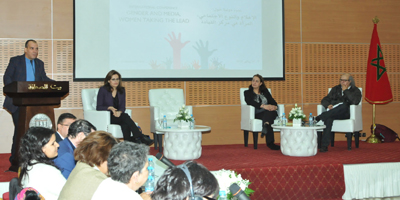
BRUSSELS: The IFJ Gender Council held on January 9 its statutory mid-term conference on the theme 'Gender and Media: Women Taking the Lead', hosted by the IFJ member union, the Syndicat national de la presse marocaine, at its newly inaugurated Maison de la presse in Tangier, Morocco.
The first day was opened by the Gender Council co-chair Mounia Belafia, IFJ president Jim Boumelha and union officials attracting scores of journalists from the union as well as members of the Gender Council from IFJ regions.
During the conference, participants discussed issues relating to gender and media in three sessions: (i) Global media and women’s rights, (ii) Women empowerment: comparison and common ground and (iii) Gendered advocacy: leadership, goals and activities. Finally a workshop on collective bargaining on equal rights was delivered by the General Secretary of the National Union of Journalists in the UK and Ireland, Michelle Stanistreet.
"It is understood that men are competent by nature, whereas women have always to prove themselves," said Mounia Belafia. "Why aren't men also asked how to reconcile work and family life? It is not just a question for women."
In opening of the conference, IFJ president Jim Boumelha praised the work the Council has accomplished in tackling discrimination against women and reduce inequality between women and men since the Council was launched by the IFJ at its congress in 2001 in Seoul, Korea.
“Issues that women journalists grappled with a decade ago on women’s choices, working hours and family responsibilities, on atypical and precarious work, glass ceiling and the equal pay gap are still with us today as they were a decade ago. The decent work deficit for women is more profound than it is for men, and has proved that gender inequality is universal, complex in its multiple dimensions, and also that it has proven remarkably resistant to the action so far taken to eradicate it,” said Boumelha.
Speaker after speaker brought different experiences from their own regions but they were all united in their analysis of the worsening political and social conditions and their impact on women journalists’ working conditions.
"Women in Latin America and the Caribbean face physical violence, attacks against their moral integrity, cyber bullying, instability of employment and wage gap," added Zuliana Lainez, a member of the IFJ Gender Council and the IFJ Executive Committe.
Women from the Arab world stressed the serious situation for women journalists following the impact of the recent political turmoil. Gender-based violence in the world of work was also a recurrent theme in the debates.
The conference continuing its second day as a statutory meeting received reports on various aspects of its work and delegates set out a plan of action for the rest of the mandate of the council, which included campaigning for sound policies and enforceable legislation for the promotion of gender equality and the empowerment of women at all levels at the workplace, promoting international commitments covering national norms and laws on gender equality, working towards harmonising equal rights for women in collective agreements, and generally turning the general commitment to gender equality into concrete activities.
Great emphasis was made in strengthening the commitment to work with the ITUC on their campaign for an ILO convention dealing specifically with the issue of gender-based violence in the world of work and developing the IFJ participation in the work of UNESCO’s Global Alliance on Media and Gender, following the election at its first general assembly, of gender council co-chair Mounia Belafia on its international steering committee. - IFJ

November 02, 2025: PFUJ urges Pakistan’s federal and provincial governments to end Impunity for Crimes Against Journalists and ensure their safety and press freedom.

November 02, 2025: Impunity for crimes against journalists deepens worldwide as Pakistan reports a 60 percent surge in attacks and weak enforcement of safety laws.

November 01, 2025: Pakistan Press Foundation reports 137 attacks on journalists in 2025, highlighting rising threats, legal harassment, and censorship on the International Day to End Impunity.
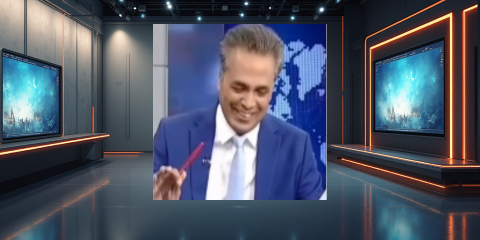
November 01, 2025: A viral Samaa TV clip featuring MNA Sher Afzal Marwat’s crude remarks and Talat Hussain’s laughter raises questions about the declining ethics of Pakistani television.

October 31, 2025: Police foiled a plot to kill DawnNewsTV journalist Tahir Naseer in Rawalpindi after arresting suspects hired for Rs200,000. Naseer says threats followed his reporting.
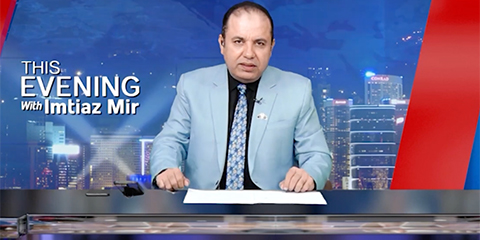
October 31, 2025: CPJ calls on Pakistan to bring Imtiaz Mir’s killers to justice after the journalist was allegedly murdered by a banned militant group in Karachi.

October 30, 2025: The PFUJ has condemned a fabricated drug case against journalist Matiullah Jan, calling it an attempt to silence him and urging authorities to quash the charges immediately.

October 30, 2025: NewsOne TV remains on air but faces mass layoffs and delayed salaries, exposing Pakistan’s worsening media crisis and financial instability.

November 02, 2025 Independent outlet All About Macau to halt print and online operations amid rising pressure, financial strain, and legal threats, sparking press freedom concerns in the city.
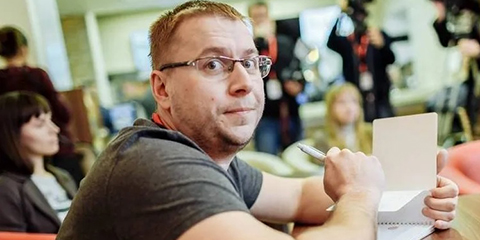
November 01, 2025 Belarus court jails journalist Siarhei Chabotska for extremism and defaming the president, highlighting Minsk’s ongoing crackdown on press freedom.
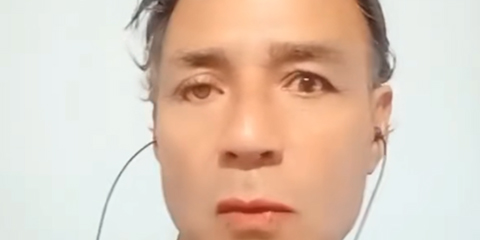
November 01, 2025 Mexican journalist Miguel Angel Beltran was found murdered in Durango. CPJ urges authorities to ensure justice amid rising violence against journalists in Mexico.

November 01, 2025 UNESCO survey finds one-third of media lawyers cannot effectively defend journalists due to threats, limited resources, and lack of specialization.

October 31, 2025 Radio Free Asia, a US government-funded broadcaster covering tightly controlled Asian media environments, has suspended all news operations after federal funding dried up.